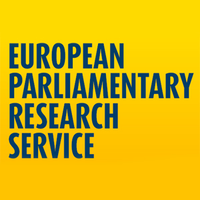The European Parliament's Directorate-General for Parliamentary Research Services (DG EPRS) is the in-house research centre and think tank of the European Parliament (EP). It provides research, analysis and information, on an independent basis, to Members of the European Parliament (MEP) and parliamentary committees on all EU policies, legislation and issues. Usually known as the European Parliamentary Research Service, we comprise four directorates: the Members' Research Service, the Directorate for Impact Assessment and European Added Value, the Directorate for the Library and Knowledge Services, and the Directorate for Resources.
In addition, there are three horizontal units within the Directorate-General's central services: the Strategy and Innovation Unit, the Linking the Levels Unit and the Strategic Foresight and Capabilities Unit. The directorate-general comprises a total of 23 units and just over 300 staff. 'Empowering through knowledge' is the guiding principle of EPRS, underpinning the mission of the entire DG. In concrete terms, between 2014 and 2020, EPRS:
A video about the EPRS is available at: https://www.youtube.com/watch?v=f7mXXUZSq0g.
A video specifically on EPRS publications is available at: https://www.youtube.com/watch?v=R1bUdGQF96Y&feature=youtu
The European Added Value (EAVA) Unit analyses the potential benefit (in particular economic impacts) of future action by the European Union.
We assess where greater efficiency or a collective public good could be realised through common action at European level but we also identify the added value of existing EU policies in practice.
In our daily work we basically answer two questions: What the EU has done for you? But also: what else could the EU do for you?
Our independent quantitative as well as qualitative analysis of potential gains from EU action supports the work of the European Parliament committees. By doing that we hope to contribute with data, facts and figures to a positive and constructive narrative about the future of the European Union.
The results of our research will result into different publications such as Cost of Non-Europe Reports, EU Added Value Assessments and EU in Action briefings. Some of these publications are also presented in committee or during public events. The unit works for the European Parliament's committees, so we liaise closely with them, we advise them, and we ensure that our products and services respond to their specific needs.
Here below few examples of our publications:
https://www.europarl.europa.eu/RegData/etudes/BRIE/2020/642828/EPRS_BRI(2020)642828_EN.pdf https://www.europarl.europa.eu/RegData/etudes/BRIE/2020/642829/EPRS_BRI(2020)642829_EN.pdf https://www.europarl.europa.eu/RegData/etudes/BRIE/2020/642831/EPRS_BRI(2020)642831_EN.pdf
Last but not least, the unit is also responsible for the flagship Parliament publication, Mapping the Cost of Non-Europe, which helped to frame the legislative and political programme at EU level for the period 2014-2019.
It builds on a series of more detailed pieces of work undertaken by the unit for individual EP committees since 2012. You can find the latest version of the publication here below:
http://www.europarl.europa.eu/RegData/etudes/STUD/2019/631745/EPRS_STU(2019)631745_EN.pdf
As trainee in the European Added Value Unit (EAVA unit) you will be actively involved in our search for the benefits but also the costs of action at EU level across the different policy areas.
In fact, the unit deals with a broad range of issues, from Economic to Social issues, from Digital Single Market to Justice and Home Affairs, from Robotics and Artificial Intelligence to Environmental policy.
The Covid-19 crisis is requesting additional efforts to ensure a quick and properly recovery.
You will be asked to conduct quick economic analysis and data collection, to help colleagues working on statistical tools, to provide economic literature research, comparative analysis, cost estimations and added value assessment of the measures the EU Institutions are going to implement to overcome the crisis.
Ideally an economist or someone with a strong economic background so to be able:
this job offer is not open for applications

European Parliamentary Research Service - EPRS
this job offer is not open for applications